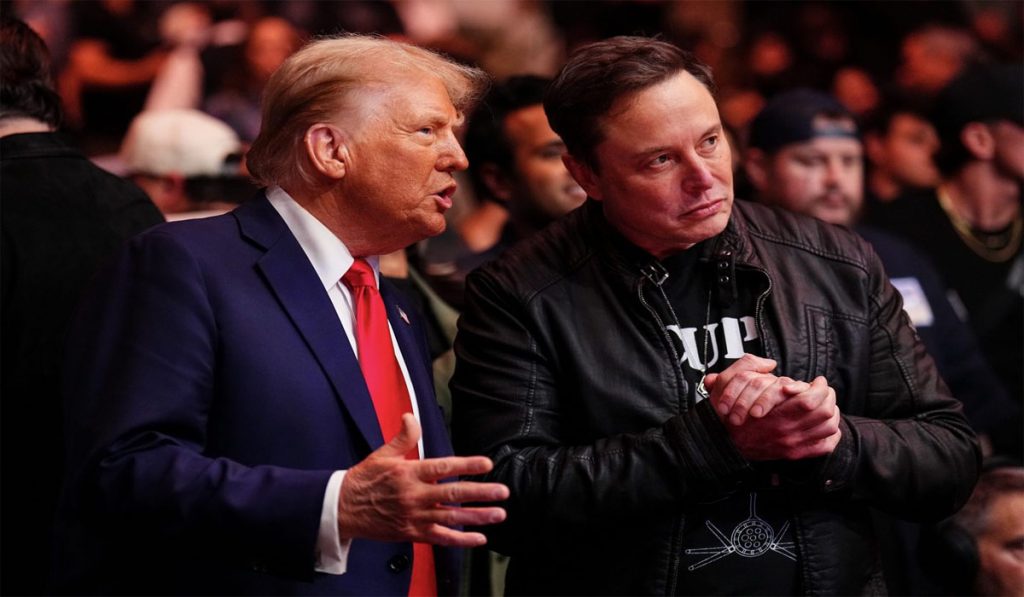Billionaire entrepreneur Elon Musk has launched a fierce public attack on former US President Donald Trump’s latest tax-and-spending legislation, sharply criticising it as a wasteful and reckless move that could severely damage America’s economic stability. Once seen as an ally and informal adviser to Trump, Musk now appears to be distancing himself from the former president, accusing him of betraying public trust.
The bill, controversially dubbed the “One, Big, Beautiful Bill” by Trump and passed recently by the House of Representatives, proposes sweeping tax cuts and expanded federal spending. Musk, however, expressed deep discontent, calling it an outrageous “pork-filled” piece of legislation that will swell the national deficit and weigh down future generations with unsustainable debt.
Taking to his social media platform X (formerly Twitter) on June 3, Musk posted: “I’m sorry, but I just can’t stand it anymore. This massive, outrageous, pork-filled Congressional spending bill is a disgusting abomination.” He went on to criticise lawmakers who supported the bill, writing, “Shame on those who voted for it. You know you did wrong.” Musk’s objections revolve primarily around the bill’s projected economic impact. According to his post, the legislation could raise the federal deficit to an estimated \$2.5 trillion. He warned that the consequences of such fiscal expansion would be disastrous for the country’s financial health and its citizens.
Musk’s remarks mark a sharp escalation from his earlier statements on the issue. In May, he had merely expressed “disappointment” over the bill, particularly with the scale of government spending. Now, his language has taken a more confrontational tone, signalling a potential rift in his relationship with Trump and his administration.
In a follow-up post, Musk even appeared to call for political retribution against those who supported the bill. “In November next year, we fire all politicians who betrayed the American people,” he wrote. The bill, which still awaits approval from the Senate, includes large-scale tax breaks and provisions for increased federal borrowing.
While Trump and his supporters claim it will stimulate growth and reduce bureaucratic ineffciencies, critics argue that it disproportionately benefits corporations and the wealthy, while undermining long-term economic sustainability. Musk’s concerns are not purely ideological. Analysts suggest the legislation includes cuts to incentives for clean energy and electric vehicles, sectors closely linked to Musk’s business empire. In particular, the bill reduces or eliminates federal tax credits for electric vehicles — a move that could significantly hurt Tesla’s sales and future plans.
According to US-based news outlet Axios, Tesla has spent over \$240,000 lobbying for the preservation of the electric vehicle tax credit. Sources indicate Musk had tried to influence the content of the bill, though his efforts ultimately failed. His growing frustration may have contributed to his decision to step down from his advisory role within the Trump administration. Musk had been working as a “special government employee” tasked with identifying areas for federal cost-cutting through a team known as the Department of Government Efficiency, or “Doge.”
However, after completing 129 days in the unpaid position, Musk reportedly expressed interest in continuing, only to be turned down by White House officials. His departure came despite Trump’s warm send-off at the Oval Office, where the president thanked Musk for his service and hinted at continued collaboration. But Musk’s recent comments suggest any future cooperation may now be in jeopardy. Complicating matters further is the failed nomination of Jared Isaacman, a close associate of Musk, to lead NASA.
Trump’s sudden decision to withdraw Isaacman’s name is being seen by some as the final straw in a series of disagreements between Musk and the White House. While some insiders blame the Senate’s concerns over Isaacman’s political affiliations, others believe internal power struggles may have influenced the decision.
Sources told Axios that Sergio Gor, head of the Office of Presidential Personnel, had clashed with Musk over appointments. Though Gor’s role in the Isaacman withdrawal is unclear, the episode appears to have deeply affected Musk. “Perception is reality, and I’m pretty sure Elon thought the NASA situation was a last insult,” a White House official was quoted as saying. Meanwhile, the White Hous e h as so ught to downplay Musk’s criticisms.
Press Secretary Karoline Leavitt told reporters, “The president already knows where Elon Musk stood on this bill,” and added that Musk’s public posts “don’t change the president’s opinion.” Still, political observers are closely watching for signs of a deeper fracture in the Musk-Trump relationship. While both figures have benefitted from their association in the past — Trump gaining tech-world legitimacy and Musk enjoying policy influence — their public alignment now appears to be weakening. Despite this, insiders say the two men remain on speaking terms.
According to reports from Vox, Musk and Trump are still considered “friends and allies,” although Trump has reportedly grown irritated by Musk’s critical social media activity. Musk, who previously declared that he planned to scale back his political engagement, may not be retreating from public affairs after all.
His harsh assessment of the taxand-spending bill and his threats to politically mobilize against its backers suggest he remains very much a force in national politics. As the Senate takes up the bill for debate, the growing divide between one of the tech world’s most influential figures and the Republican leadership could complicate legislative proceedings and raise questions about the party’s future direction — especially in areas like technology, clean energy, and fiscal policy
